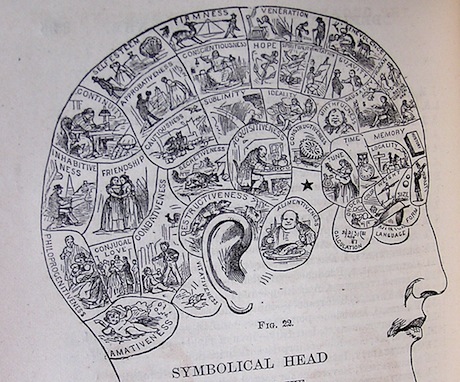Chinwag Psych Interview: Daniel Bennett & Marina Clement from OgilvyChange
Chinwag Psych is almost here. Grab a ticket and prepare to learn all sorts of intriguing things about machine learning, psychology and neuroscience in business and beyond.
A formidable list of speakers span academic principles, marketing skills, psychology for teams, behavioural economics and much more. If you’re already signed up, be sure to catch Marina Clement and Dan Bennett of Ogilvy Change.
They will be talking about how Ogilvy Change one a pitch for News International. As a result they completely redesigned the subscription process to attract more customers.
Ogilvy Change is a relatively new approach combining behavioural academic research with the communications expertise of the wider group.
Clement has been with the company for eight years and finds this new field very exciting. “There's a real variety,” she told Chinwag. “Sometimes we are looking at websites and what nudges we can put into practice. Some are to do with product development or solving bigger issues. It's fascinating because of the diversity of what we do”.
The concept of crossing academic studies and modern advertising is one that Clement says clients are really starting to understand and work with.
“I do think it's still gaining momentum. It feels like it is a new area,” she says. “We've certainly felt over the last year or so that there has been more and more awareness than before and more interest from our clients to look at new methods.”
A cross-disciplinary approach certainly also suits Bennett, who has a background studying psychology.
“I did a psychology degree and I am currently publishing a few papers,” he explains. “One is on attention and language processing and will be published in a journal soon. I'm also publishing a paper on nudging and healthy eating. This is how I came to the topic, through finding out how to change people’s behaviour in terms of health. But for me it’s hard not to see how this can be applied to business.”
Ads and academia
So how is Ogilvy Change balancing academic research with effective strategies for clients?
Clement says that a combination of approaches has generated some great ways of thinking.
“Over the last year or so we've done a couple of book launches with particular academics including Daniel Khaneman’s ‘Thinking Fast and Slow’ and ‘The Ten Principles Behind Great Customer Experiences’ by Matt Watkinson.
“Also working with people like Rory Sutherland, who is just so interesting and will always have these extraordinary examples and take on situations. He also has a great relationship with a number of academics,” she says.
Combining the work of academics with in-house knowledge, the Ogilvy Change team puts together expertise from across the industry. According to Bennett, it is important to balance the practical and the academic to get the best results.
“I think you have a duty to keep up with the latest research. It's vital that we all understand,” he says. “That's why we came from the world of theory into practice. I think it's important to know where all this knowledge comes from and then you can understand its limitations when you apply it in real-world scenarios.”
So why bring psychology into business at all? Clement says that this comes down to finding the best ways to affect change.
“In marketing, understanding people in order to affect their behaviour has always been important, but psychology really helps enrich our understanding of people, how they think, what influences their decision making process and irrationalities of the human mind,” she says. “It gives us extra depth to our knowledge and allows us to change behaviour for the better.”
So is there a place for psychologists in the office? Bennett is not entirely convinced that this would be the right route for every business.
“The problem with a psychologist or any academic is that they spend all of their life learning a lot about a little,” he says. “So, in some cases, having an in-house academic is pretty useless unless they are strictly focused on the area that you are as a business.
“I think you need people who have broad interests in psychology and know a little bit about a lot. It's a good to have a chief psychological officer as well as a chief economic officer, but it has to be the right person.”
Having access to the right academics for the right reasons appears to be an interesting way to work with the best of both worlds.
So how did the Ogilvy Change team use psychology and nudges to rearrange the News International subscription service? Well, if you bag a ticket to Chinwag Psych you can hear them reveal all, as well as taking notes from all of the other great minds who will be honing your business brain.
Photo (cc) Muffet.





